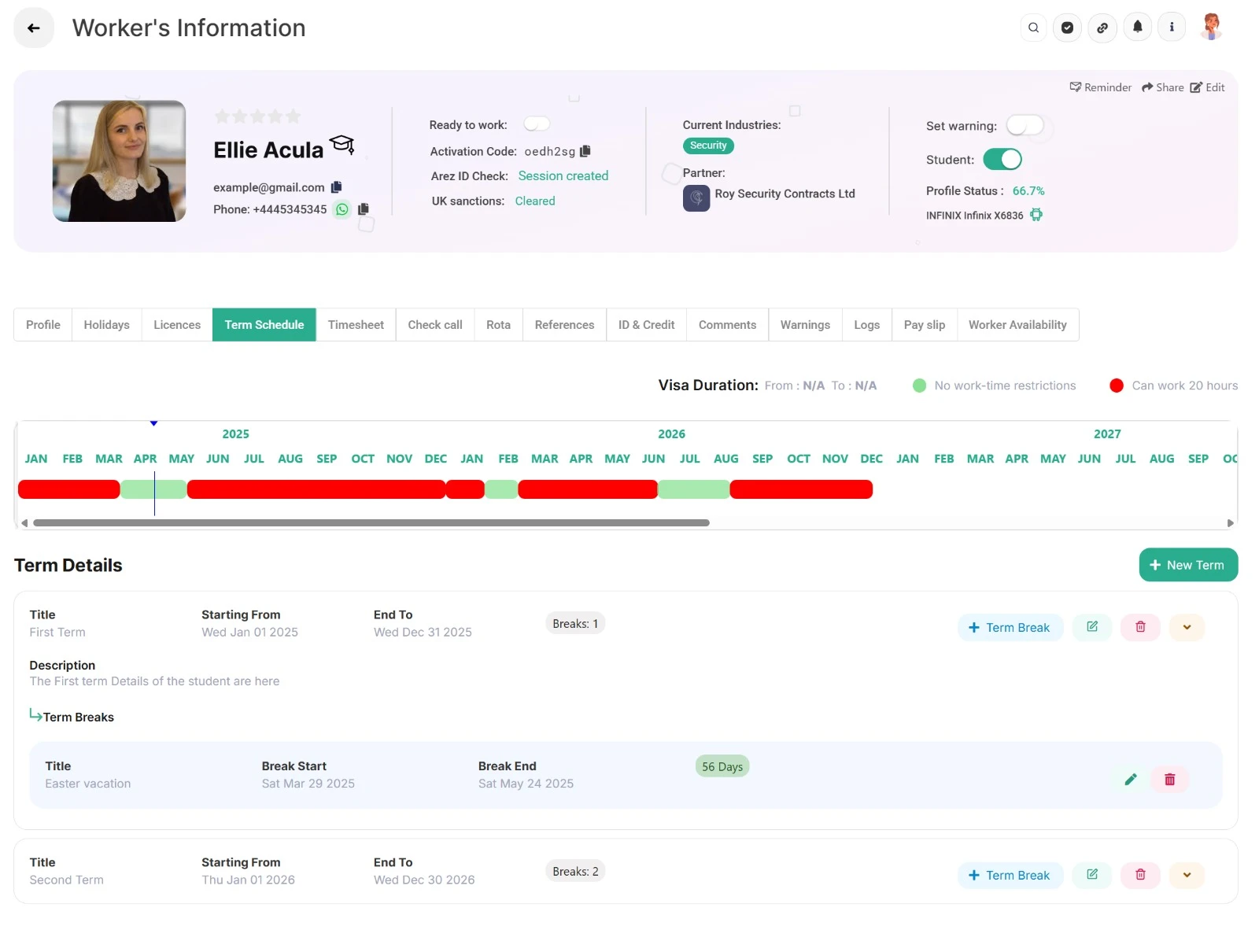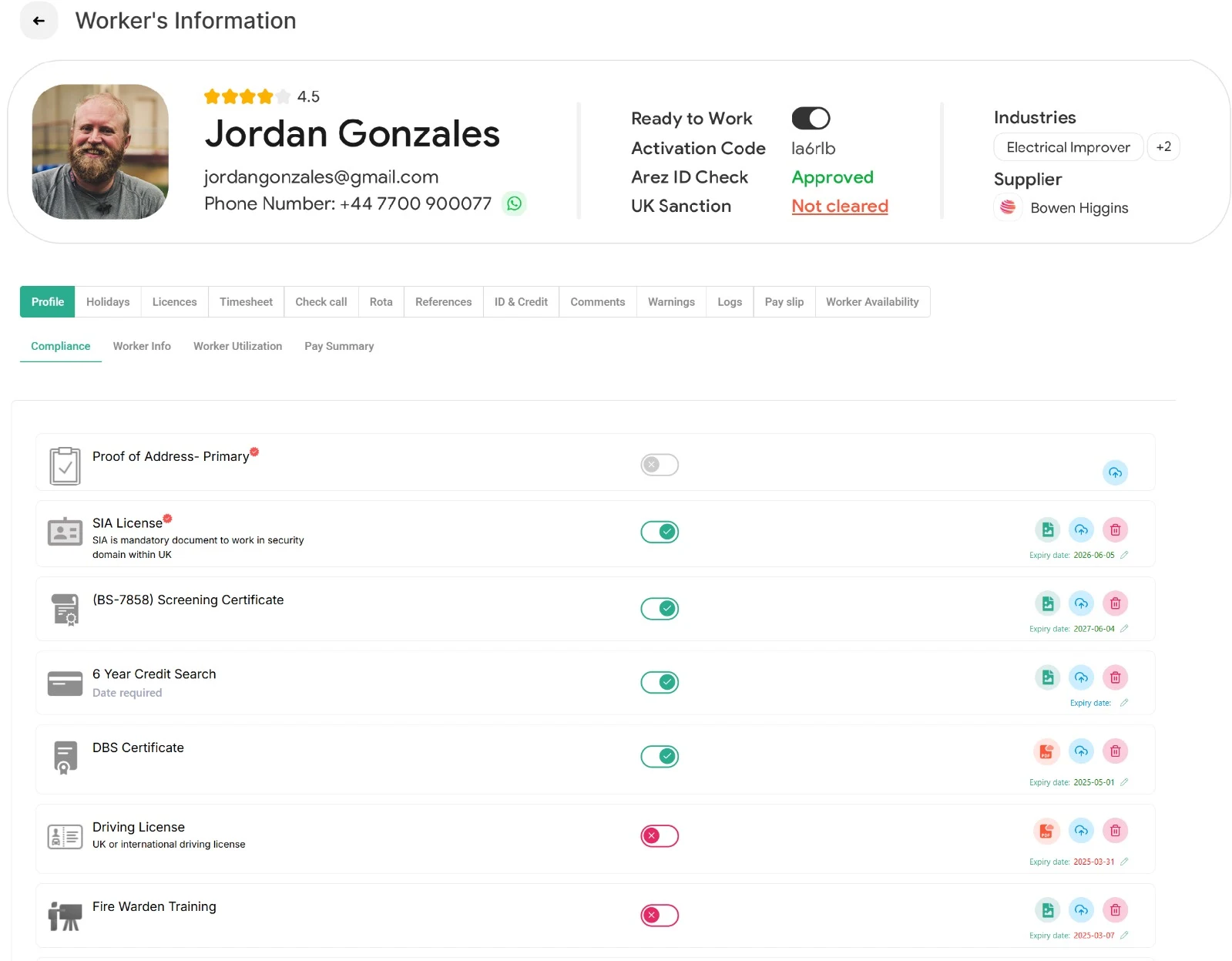At first glance, the UK security industry appears to be thriving. However, a closer look reveals a more complex reality. Advancements in camera technology, automation, and AI are reshaping the landscape, gradually reducing the demand for traditional manned guarding services. At the same time, organisations are under increasing pressure to control costs while maintaining — or even improving — service quality. Managing security operations today often feels less like steady oversight and more like a high-wire balancing act.
Welcome to this blog series, where we uncover seven critical challenges currently impacting security service delivery — and explore how Arez.io is helping drive innovation, efficiency, and operational excellence through technology and AI.
Because in today’s security industry, staying still isn’t standing safe — it’s standing still on a moving treadmill.
UK’s Security Industry and Its Complexities
With a workforce of approximately 450,000 SIA-licensed security officers as of March 2024 — around 11% of whom are female and representing a diverse range of nationalities including Pakistani, Indian, and Nigerian — the UK security industry remains highly mobile and dynamic. Despite its scale, firms continue to operate on extremely thin profit margins while navigating stringent compliance standards. Firms often juggle multiple contracts, each with its own SLAs, vetting standards, and logistical headaches. Add in student visa restrictions, fluctuating site demands, and last-minute security officer cancellations, and it becomes a nightmare to manage efficiently. With so little room for error, one misstep in planning or paperwork can cost thousands – or worse, the entire contract.

Arez-Security has been developed from the ground up in close collaboration with security teams responsible for delivering complex security contracts and managing the deployment of thousands of hours of service each week.
Tight Margins & Operational Challenges
When both contractors and workers are paid at base rates, there’s barely any profit margin left – and even less room for inefficiencies or admin slip-ups. This also leads to lack of capable resources being employed to deliver optimum security services.
How does Arez.io solve this?
- Smart location and Geo-tagging: Having already identified the issue of lower profit margins, Arez’s advanced location and geo-tagging features allow companies to find workers geographically closer to the shift location to reduce operational and travel costs for the worker and decrease the chance of “blow outs” (worker not turning up after confirming a shift)
- Next-level Automations: Gone are the days of manual documentation and verification. Arez.io’s built-in system notifies registered workers and companies to upload required documents, automating BS-7858 vetting and reducing onboarding costs and speeding up compliance processes.
- Flexible Workforce Intelligence: Managing PAYE, Self-Employed, and Student Workers with Ease
In an industry as large and dynamic as security, workers come in all employment types — from PAYE employees to self-employed contractors and student visa holders. Managing this diversity is critical for both compliance and operational efficiency.
Arez is built with this complexity in mind. It automatically recognises different worker classifications and manages them according to their specific requirements. For example, Arez intelligently tracks term-time and holiday hours for student visa holders, ensuring compliance with strict 20-hour work limits.
This level of flexibility takes compliance management to a new standard — not only keeping the company protected, but also ensuring individual workers remain audit-ready at all times.
That's what makes Arez.io such a game-changer; everything from finding the right worker geographically to getting them fully vetted and deployed happens right in the app. No endless email chains, no chasing paperwork, no operational bloat, which means even with super tight margins, security firms can still deliver a solid, professional service without burning out their teams or breaking the bank.











